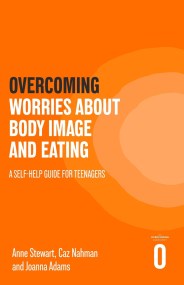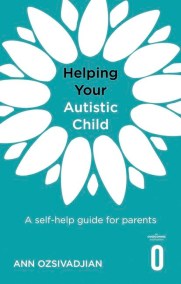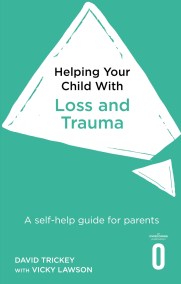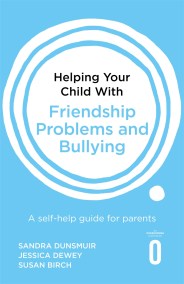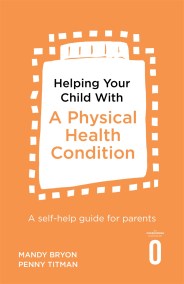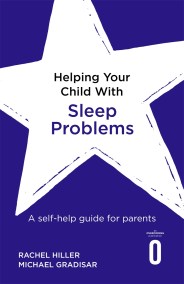Practical, evidence-based advice for managing distressed behaviours and common situations involving autistic children.
Autism affects about one per cent of the population, and whilst it can present very differently among individuals, there are some common challenges faced by autistic people. This self-help guide focuses on practical, proven techniques to help parents support their autistic children with commonly experienced areas of difficulty.
Written by authors with extensive experience in research and in working clinically with children with a wide range of neurodevelopmental differences, this book uses a strengths-based approach to guide parents in helping their children to enhance their skills, as well as to manage some common challenges.
This book will help you to:
· Support your child through anxiety and social interaction issues
· Manage sleep problems and feeding difficulties
· Understand sensory responses in autism
· Understand and manage distressed behaviour, including self-harm and demand avoidance
Helping Your Child is a series for parents and caregivers to support children through developmental difficulties, both psychological and physical. Each guide uses clinically proven techniques.
Series editors: Dr Polly Waite and Emeritus Professor Peter Cooper
Autism affects about one per cent of the population, and whilst it can present very differently among individuals, there are some common challenges faced by autistic people. This self-help guide focuses on practical, proven techniques to help parents support their autistic children with commonly experienced areas of difficulty.
Written by authors with extensive experience in research and in working clinically with children with a wide range of neurodevelopmental differences, this book uses a strengths-based approach to guide parents in helping their children to enhance their skills, as well as to manage some common challenges.
This book will help you to:
· Support your child through anxiety and social interaction issues
· Manage sleep problems and feeding difficulties
· Understand sensory responses in autism
· Understand and manage distressed behaviour, including self-harm and demand avoidance
Helping Your Child is a series for parents and caregivers to support children through developmental difficulties, both psychological and physical. Each guide uses clinically proven techniques.
Series editors: Dr Polly Waite and Emeritus Professor Peter Cooper
Newsletter Signup
By clicking ‘Sign Up,’ I acknowledge that I have read and agree to Hachette Book Group’s Privacy Policy and Terms of Use
Reviews
This self-help guide focuses on practical, proven techniques to help parents support their autistic children in many common areas of difficulty. A useful focus of the book is the information it provides for parents seeking advice on how to help their autistic child manage anxiety. It also includes advice on managing communication needs, sleep, feeding and sensory needs. Ann Ozsivadjian's book also covers how to understand sensory responses in autism and how to manage distressed behaviour, including self-harm and demand avoidance
This is a welcome new book to support parents of autistic children. While it will be really helpful for many parents, I have no doubt that this book would be equally valuable for many professionals who work in this field. The book is very much structured around the 'gold-standard' multidisciplinary team approach that, where available, offers the best holistic perspective towards the management of such children. Thus, there are chapters written by skilled occupational therapists, speech therapists, feeding disorder therapists and sleep psychologists. In this way, the book embraces the complex comorbidities that so often add to the complexity of helping these children and families. The book works from a strength and growth mindset perspective and is sympathetic to the different terminology used to discuss autistic people. Each chapter is clearly set out and detailed, explaining each intervention's 'why' and 'how'. This avoids the often patronising 'but you need to see a professional to have support on this' approach. With waiting lists longer than even to see children with suspected autistic spectrum conditions, this book can fill the gap and give practical support immediately to those who need it. This book is high on my list of 'recommended books' for families I see whose child has a new autistic spectrum diagnosis



